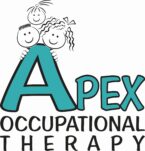Public School, Private School, Homeschool or Charter School?
I will be mentioning 504 Plans and IDEA (Individuals with Disabilities Education Act, the national law that requires students serve children with disabilities). If you are unsure of what these are, check out the resource at the bottom of the blog. Send me an email if you have additional questions.
Trying to decide the best environment for your child to have their education is no easy task. People used to accept that district public schools were for everyone, but there are more and more choices available now. If you have a child with a diagnosis this decision can be especially difficult.
First, let’s clarify what special education services are and aren’t available with each option:
Public Schools: Must provide a Free and Appropriate Education under IDEA. 504 Plans must also be accommodated.
Charter Schools: Charter schools are public schools, but are funded differently and have slightly different rules, but not when it comes to providing services for children with IEPs and 504 Plans.
Private Schools: They are under no obligation to provide special education services to children with IEPs. Some private schools have special education teachers and do provide the service, but they do not have a legal obligation to do so, so they are less accountable than public schools. If private schools accept any federal funds they must provide accommodations provided in a 504 Plan.
Homeschool: (At least in North Carolina) You can still have your child evaluated through the public school system. If they qualify for services the school-based IEP team can write an IEP, but each district is different in what, if any, services they provide. Some districts may only offer a related service such as speech, OT or PT. (Rules tend to be different for children in private preschools, so this is primarily focused on children who are school age.) Homeschooling is considered private school under the law.
While everyone wants to find a place that is a good fit for their child keep in mind that there is probably no “perfect” fit. You will find strengths and weaknesses wherever you look.
Public Schools
Pros: Have legal obligation to provide services/accommodations, have wide variety of services and classrooms available. Schools may have more cultural and racial diversity. Offers transportation.
Cons: Like all schools, your experience can vary widely from one teacher to another and one school to another. It can feel as though it is less individualized and there is less differentiation of learning or understanding of children with different learning styles. Class sizes can be large.
Charter Schools
Pros: Have legal obligation to provide services/accommodations. Can be more creative in terms of approaches used for behavior issues. Some schools have more recess time. Some may have social skills and anti-bullying programs as part of their curriculum. Children who exhibit “quirky” behaviors and social interactions may be more accepted by peers. Children may not be tested as frequently. Class sizes may be smaller. Some offer transportation, some don’t.
Cons: If a child has severe delays or medical needs the school may not be able to easily meet a child’s needs. Because they don’t offer special programs and classes it may be harder to integrate services with peers who are typically developing. Directors and principals may not be as aware of special education law because there is less oversight at the school level (the state still provides oversight).
Private Schools
Pros: This varies significantly from school to school and the funding they receive. Some private schools have teachers who are inexperienced and unaware of how to teach children who have a diagnosis. Class sizes are likely to be smaller. Students may be tested less frequently. Probably does not offer transportation.
Cons: They can refuse to accept your child at the school and can kick them out if they are unable to meet their needs. They do not have oversight to make sure children with disabilities are learning and showing growth. Schools may lack diversity.
Homeschool
Pros: This also varies significantly. If you are the parent teaching you can make your own schedule. You can use a variety of learning tools that work well for your child and incorporate the interests of your child to learn. If your child needs more structure it’s easy to provide that, if they need less you can do that too! You have more flexibility to do education in the community (i.e., fieldtrips).
Cons: It may be harder for children to socialize and learn social skills. Parents as teachers may not have the training needed to provide different methods of instruction to meet their child’s needs. Parents don’t always recognize when a child has learning delays. Children may not be exposed to a diverse group of people.
School choice is a hot topic. How did you decide where to send your child? Did you feel you had a choice?
Need more information about IDEA and 504 Plans. Check out this very helpful resource:

